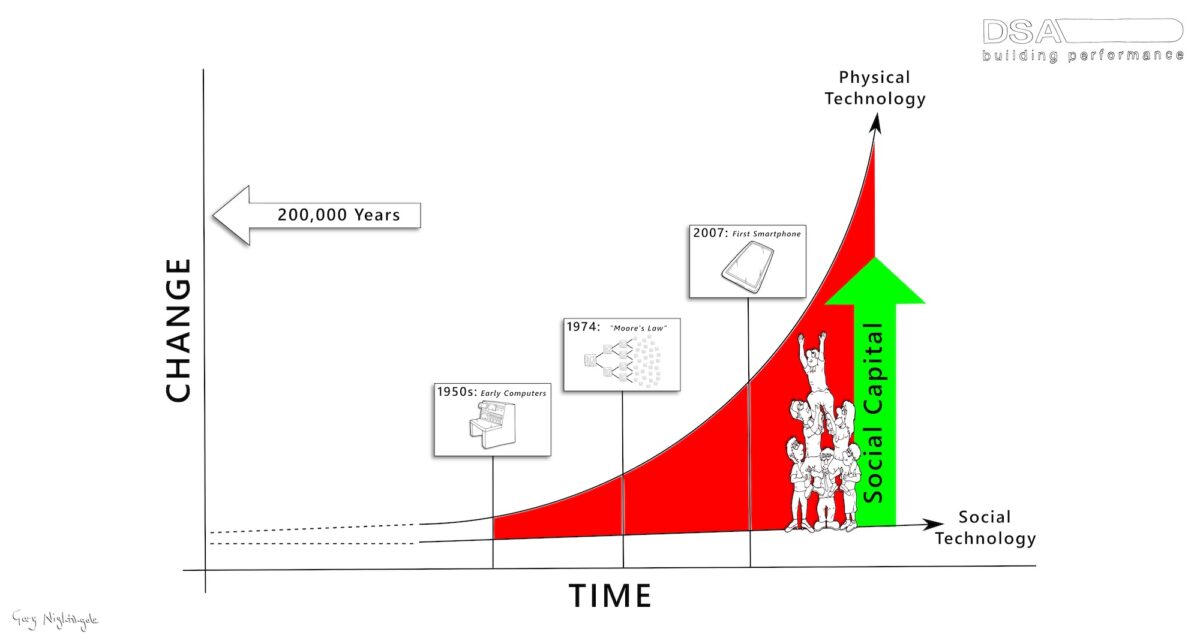The big fight-back starts here with a fun quiz ….

“Social capital” has been described as the collective value of whom we know and what we’ll do for each other.
I think it is really important right now. We all need to draw on who we know and what we are willing to do for each other.
How come now? Well, there are two obvious reasons, and a third that is less obvious but more profound.
First, there is safety. We are easing the lockdown, getting back to business, and it’s going to be tricky doing our work with a potentially deadly virus still lurking. We are going to have to look out for each other: we’ll have to ‘stay alert’ as the UK government would have it, like never before.
Second, there is business survival, with a projected drop in GDP of 25%, which is ten times worse than anything we’ve experienced since records began. And we haven’t even started with Brexit yet.
Businesses will survive in these extraordinary times only if they pull together in extraordinary ways.
There is something even more challenging
And then there’s the third, less obvious reason, which is probably the big one. It’s to do with the rapid change in physical technology.
In his excellent book, “Thank You for Being Late”, Thomas L Friedman explains how we are living in “The Great Acceleration” where physical technology is developing at an exponential rate.
This acceleration of physical technology is not matched by a corresponding acceleration in the development of “social technology”, which means how we organise ourselves in order to adapt to change.
In other words, we humans are not keeping up with ourselves.
The gap between physical and social technology manifests in longer working hours, the ‘always on’ culture prevalent in Western society, distress and declining mental health.
And this gap is set to widen as artificial intelligence speeds ahead with all its knock-on effects, both positive and negative, which we can only guess at.
So, what to do? We need to accelerate growth of social technology and this is where social capital can help.
What is social capital?
Social capital is one of those concepts that are tricky to define, while at the same time we all know what it means.
E Lessler and J Cothrell [2001] defined it as the collective value of whom we know and what we’ll do for each other.
AndMargaret Heffernan characterised it this way in her TED book, “Beyond Measure: The Big Impact of Small Changes”: “You could argue that we had a lot of brains in the room — and we did. But we also had something more important. We had social capital: the trust, knowledge, reciprocity and shared norms that create quality of life and make a group resilient.”
In his highly recommended book, “Brave New Work”, Aaron Dignan extolls ‘the genius of the organisation is not in the people, rather the genius of the organisation is between the people’ or put more simply by my coaching supervisor, Ty Francis, “interconnections and interactions count”.
In everyday language, you could say it’s the feel-good factor in a group, or the group’s esprit de corps. But these only capture bits of it. It’s more than having a good time and feeling group solidarity: you’d have to add in how much people trust each other, expect from each other, and support each other in reaching a common goal.
We certainly know when it’s not there. We’ve all been in toxic team or work environments, and it’s dreadful.
An absence of social capital isolates people and freezes out their talents.
Conversely, a high level of social capital sets teams free to achieve really great things.
Hopefully you get the idea, social capital is the sum total of trust, connectedness, helpfulness and mutual resilience in the team or organisation.
Yes, but how do you measure that? Here’s the fun quiz
To help you gauge the strength of your team’s social capital, I’ve composed a fun quiz.
It’s based on working with hundreds of teams, and on my experience of over 44 years working in a demanding project environment. You’ll get a score at the end, but equally important are the thoughts and reflections sparked by the twenty-five questions.
You could get your team members to take the quiz, add up the scores and divide by the number of participants to get an overall score.
Though I think the conversations you have and what you do about them will be more important.
This is you and your people working ‘on’ your team, building your social technology and closing the gap against the rampant physical technology.
This is you and your team fighting back and keeping up.
It takes about two and a half minutes. The quiz is here and will be live until 30 June.
I hope you find it useful, and feel free to share with colleagues as a conversation starter. I’d also welcome your thoughts.
Start the Social Capital Quiz here.

